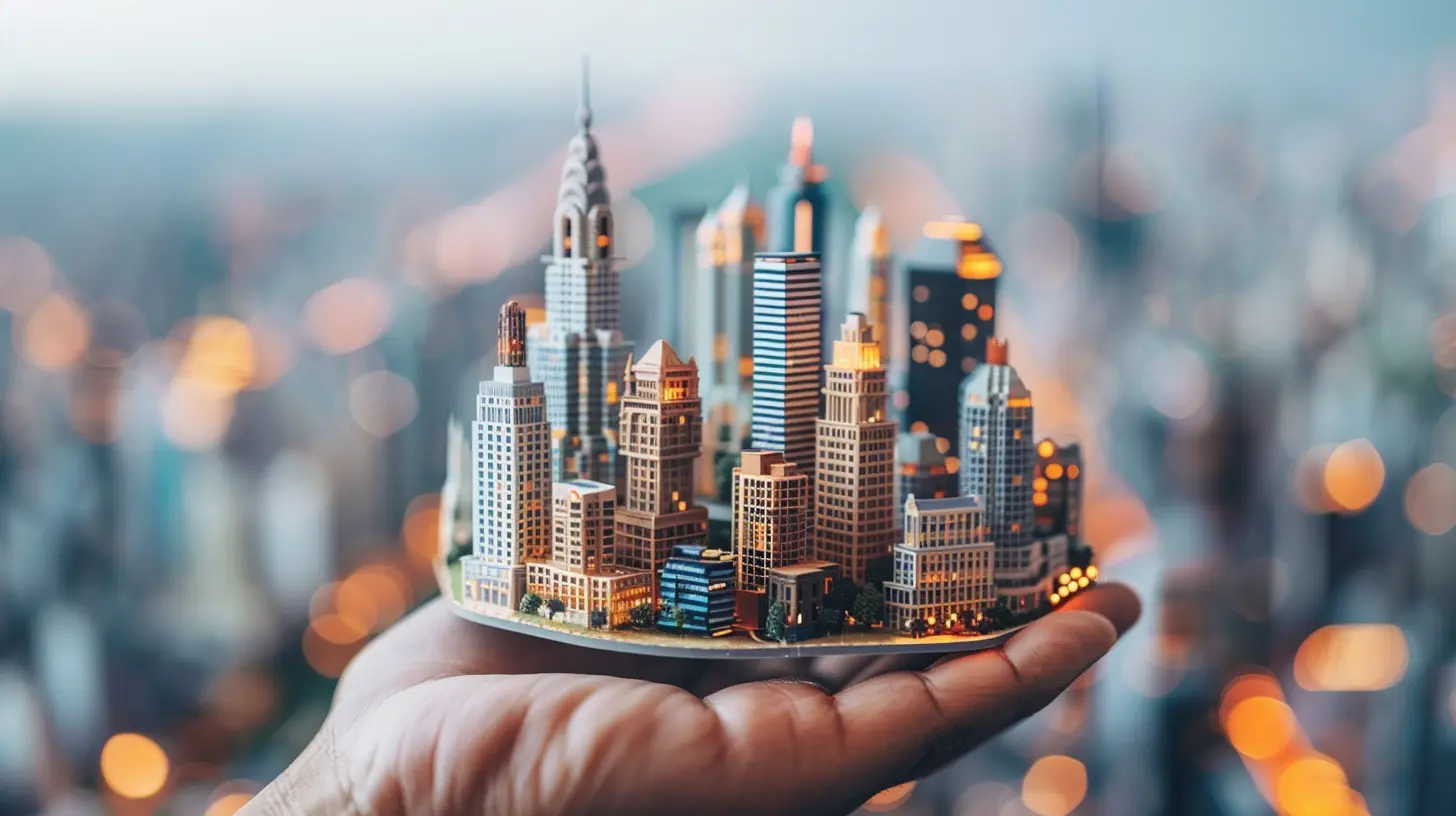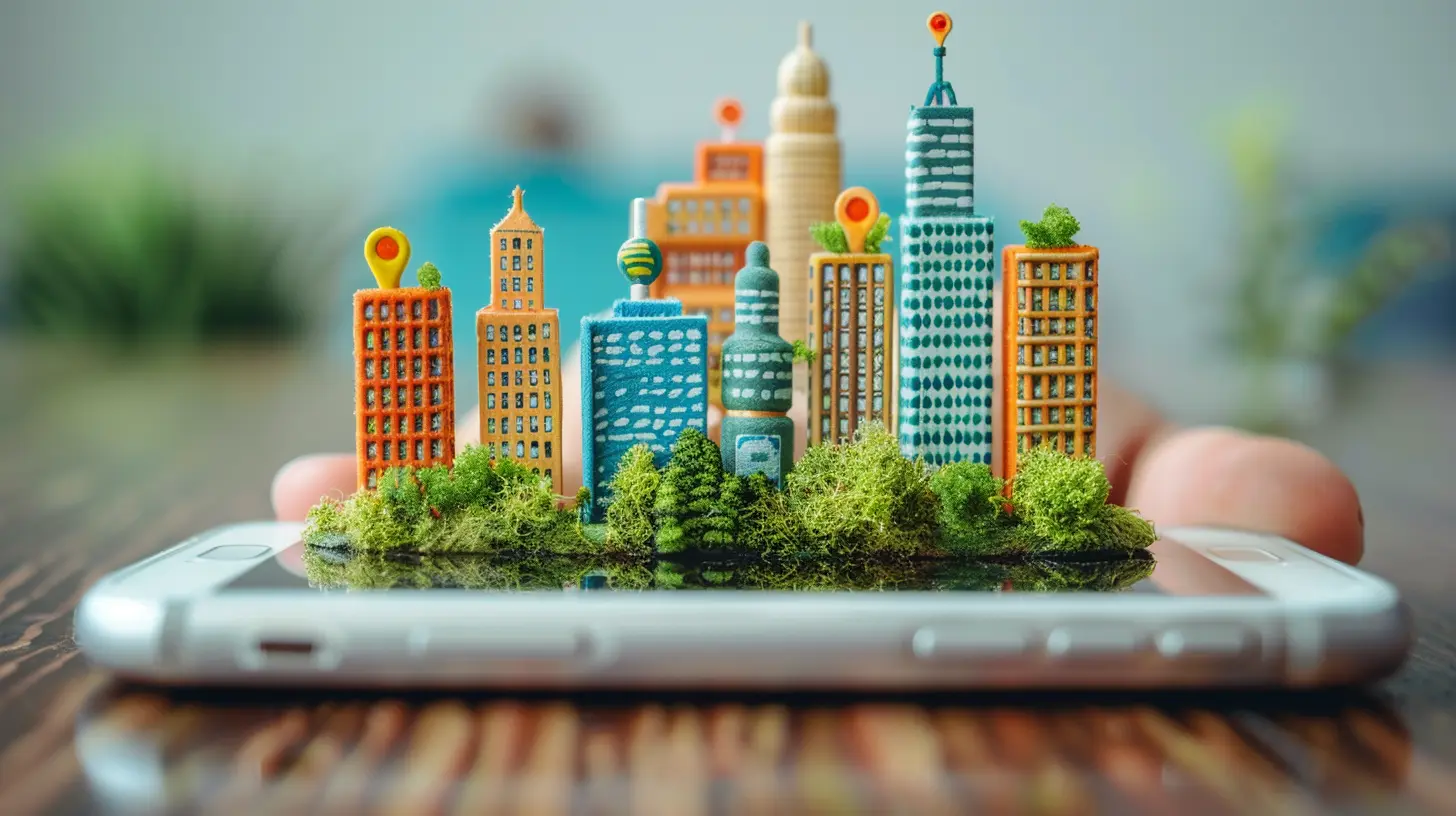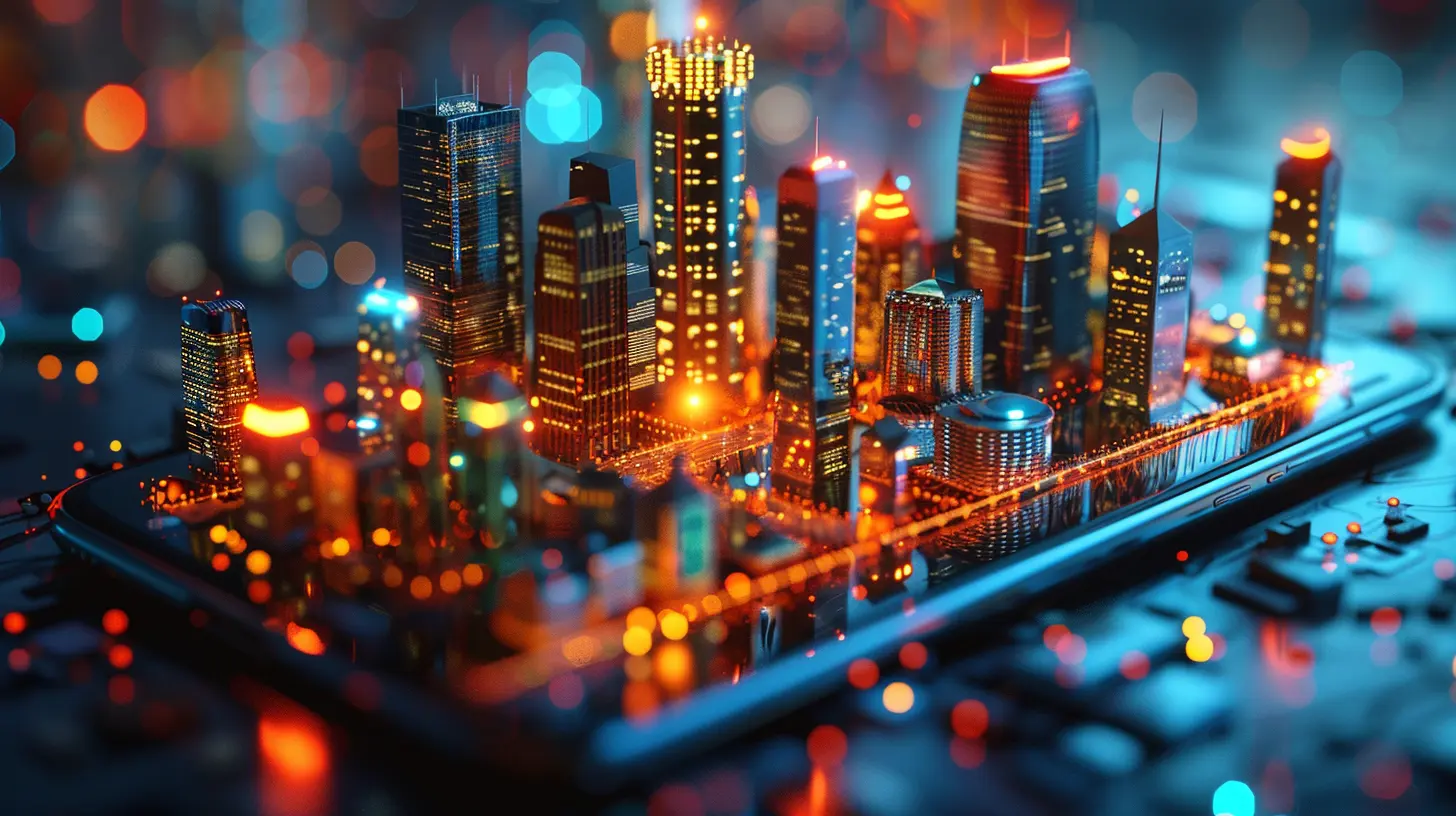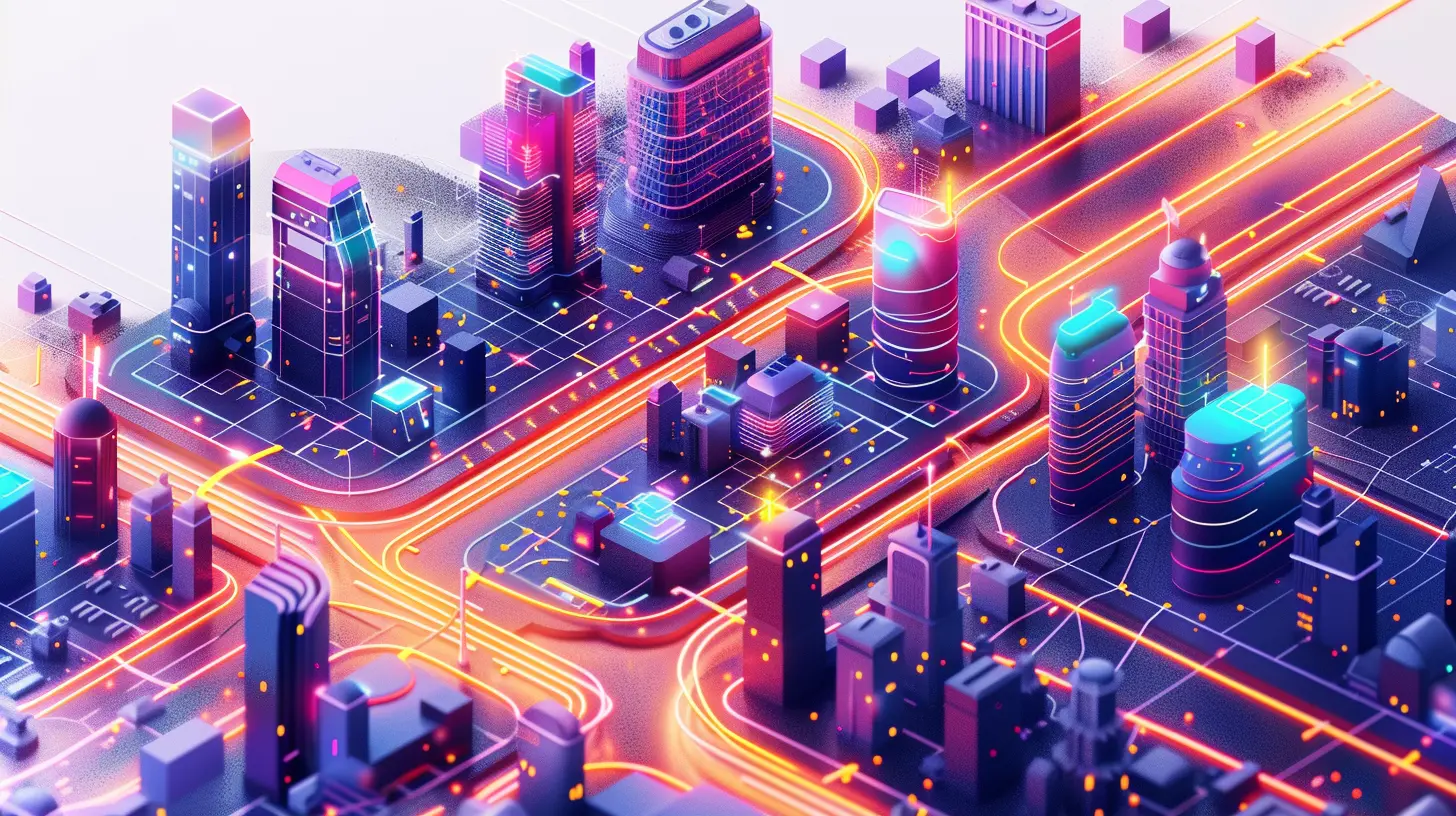How Mobile Technology is Enabling Smart Cities
30 August 2025
Welcome to the future, folks—where your phone does more than just buzz with texts and Instagram updates. We’re living in an era where mobile technology is the engine behind the transformation of our cities into smart cities. We're talking about better traffic flow, improved public services, safer streets, and yes, even garbage bins that tell you when they’re full. All powered by the thing you’re probably reading this on—your mobile device.
So grab your latte (or energy drink—we don’t judge), and let's break down how your pocket-sized device is actually playing a mega-sized role in shaping the urban jungle of tomorrow.
🌆 What Exactly Is a Smart City?
Let’s not get ahead of ourselves. Before we dive into the juicy details of mobile tech, let’s get the basics down.A smart city uses tech and data to improve city life. We're talking traffic lights that adjust themselves based on congestion, trash bins that message sanitation departments when full, and apps that tell you where to park, in real-time. Sounds like sci-fi? Not anymore.
These cities rely heavily on data—lots of it. And where does the majority of that data come from? Ding ding ding! Mobile technology. Your smartphone, wearable devices, and tablets are not just for selfies anymore—they’re mini data-generating machines.
📱 Mobile Technology: The Backbone of Smart Cities
Now, let's cut to the chase. Mobile tech is the secret sauce that turns a regular city into a “smart” one. But how?Well, imagine you're baking a cake. You need eggs (data), flour (apps), sugar (connectivity), and of course, heat (real-time communication). Mobile devices bring it all together. They collect, transmit, and receive information like a boss, making city systems smarter, faster, and way more efficient.
Real-Time Data is the Real MVP
Mobile tech delivers real-time data—the holy grail of smart city functionality. Whether it's traffic updates, weather conditions, or air quality readings, mobile devices instantly share this data with city systems.So, your city bus might show up exactly when your app says it will—not two minutes early or five minutes late. Praise be.
🚦 Smart Traffic Management: Bye-Bye, Gridlocks
Raise your hand if you've ever been stuck in traffic, questioning every life decision you've ever made. Yup, same here.Thanks to mobile tech, those days might soon be over (or at least less frequent). Here’s how it works:
- GPS Data from smartphones helps traffic systems understand where congestion is building.
- Traffic Apps like Waze and Google Maps crowdsource information to suggest alternate routes.
- Smart Traffic Lights adjust timing based on real-time traffic flow.
Basically, your phone is tattling on every car in the city—and we love it for that.
🧹 Cleaner Cities with Smart Waste Management
You probably don’t think about trash unless you’ve missed garbage day. But let me tell you—waste management is a huge deal for smart cities.Thanks to mobile-enabled IoT (Internet of Things) sensors:
- Trash bins can notify city workers when they’re full.
- Collection routes can be optimized based on fill-level data.
- Overflows and rodent parties? Reduced.
These sensors talk to servers using mobile networks. Mobile tech here acts like a translator between the trash can and the garbage truck. It’s trash talk, but futuristic.
🔒 Safer Cities: Crime Prevention and Emergency Services
We all want to feel safe, whether we’re vibing at a downtown café or walking home at midnight. Mobile technology is beefing up city safety in some seriously cool ways.Mobile-Connected Surveillance
Smart cameras equipped with facial recognition and linked to mobile networks can track suspicious activity in real-time. Not just that—apps let citizens report crimes or suspicious behavior instantly, with photos, videos, and GPS location data. Think of it as neighborhood watch but supercharged.Emergency Alerts on Fleek
Remember the good ol’ days when weather alerts came five minutes too late? Not anymore.Mobile tech allows cities to send instant alerts via SMS, apps, and notifications. Natural disaster coming? You’ll know. Fire nearby? You’ll be rerouted. Zombie apocalypse? Okay, maybe not—but if it happens, you’ll know.
🌳 Environmental Monitoring: Keeping It Green
Let’s talk about Mother Earth for a sec. With climate anxiety at an all-time high, smart cities are using mobile tech to keep things eco-friendly.Mobile Sensors for Air & Water Quality
Your city might already be using sensors to monitor pollution levels, noise, and water contamination. These sensors send data via mobile networks to centralized systems, which then:- Alert residents through apps.
- Adjust city operations (like reducing traffic in high pollution areas).
- Provide long-term data for policymakers and researchers.
Your phone isn’t just a gadget anymore. It’s a tree-hugger with Wi-Fi.
🚌 Public Transit: Smarter, Faster, Better
The worst part of public transit? Uncertainty. Is the bus on time? Will there be a seat? Am I going to be squished like a sardine again?Mobile technology is cutting out the guesswork:
- Transit Apps show real-time locations of buses and trains.
- Payment Systems are going contactless using mobile wallets.
- User Feedback helps authorities spot issues and improve the system.
We're not saying you’ll fall in love with your commute, but hey—it won't make you cry anymore.
👩💻 Citizen Engagement: You’ve Got the Power
This is where it really gets spicy. Smart cities aren't just about top-down governance. With mobile tech, citizens have a voice—and it’s a loud one.Crowdsourcing Solutions
Cities can use mobile apps to crowdsource ideas and feedback from residents. Pothole on 5th Avenue? Snap a pic and report it. Broken streetlight? Log it in.Mobile Voting and Digital IDs
Some places are experimenting with mobile voting and secure digital IDs. Imagine casting your vote while in your pajamas, sipping coffee.Democracy just put on its comfy pants.
📡 5G: The Turbo Booster of Smart Cities
Now let’s talk speed. 5G isn’t just some fancy upgrade to your phone plan; it’s the game-changer mobile tech needed to support smart cities.- Faster Data Transfer: Real-time really means real-time.
- Lower Latency: Communicate with devices and sensors instantly.
- Greater Device Capacity: More devices talking without crashing the network.
With 5G, smart cities go from crawling to flying—faster than your grandma’s homemade Wi-Fi.
🤖 The Role of AI and Mobile Synergy
Artificial Intelligence (AI) + Mobile Technology = Magic.Imagine AI analyzing the data your phone sends about your movement patterns. It helps optimize:
- Traffic lights
- Ride-sharing fleets
- Energy usage in buildings
- Public safety deployment
You don't see it happening, but trust me, it's the invisible butler making your life smoother.
📈 Challenges Along the Way
We love a good glow-up, but let’s not ignore the bumps in the road:1. Privacy Concerns: More data = more risk. Who owns your info? Is it secure?
2. Infrastructure Limitations: Not every city can afford the tech leap.
3. Digital Divide: Not everyone has equal access to mobile tech.
4. Over-Reliance on Tech: When systems fail (and they might), do we have a backup?
Smart? Yes. Flawless? Not yet.
🎯 Final Thoughts: We’re Living in the Future—Kinda
So here we are, standing at the edge of urban evolution, and mobile technology is the bridge that’s getting us to the other side. From managing traffic to fighting crime, and from improving public services to protecting the planet—your smartphone is the unsung hero of tomorrow’s city life.And sure, smart cities won't solve all our problems. But with mobile tech paving the way, they’re giving us a fighting chance to live in cleaner, safer, and more efficient urban spaces.
Now, go ahead and give your phone a little nod—it’s hustling harder than you think.
all images in this post were generated using AI tools
Category:
Mobile TechnologyAuthor:

Ugo Coleman
Discussion
rate this article
1 comments
Levi Lynch
This article insightfully explores how mobile technology is shaping smart cities by enhancing connectivity and efficiency. While the benefits are significant, it’s essential to address potential privacy concerns and ensure equitable access for all residents as urban areas evolve.
August 31, 2025 at 4:44 AM

Ugo Coleman
Thank you for your insightful comment! Addressing privacy concerns and ensuring equitable access are crucial as we embrace mobile technology in shaping the future of smart cities.


